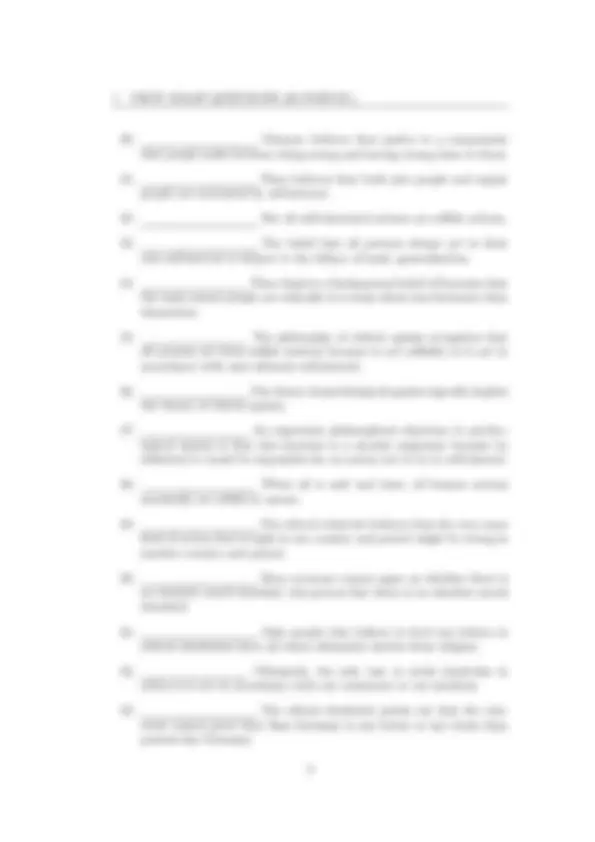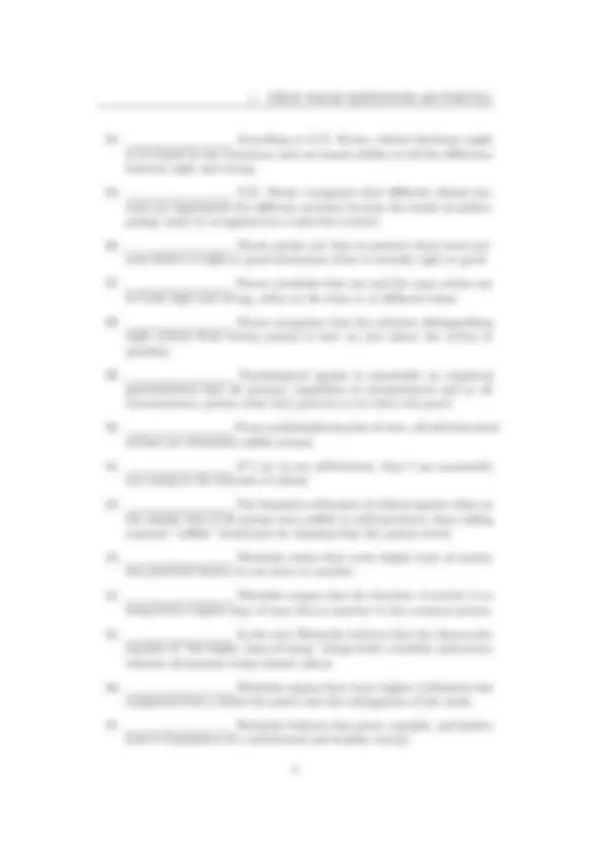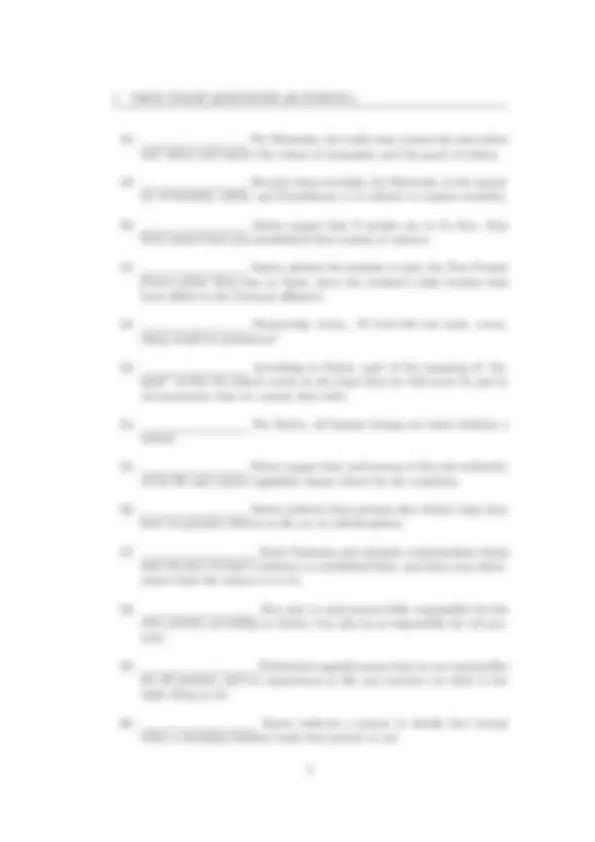





Study with the several resources on Docsity

Earn points by helping other students or get them with a premium plan


Prepare for your exams
Study with the several resources on Docsity

Earn points to download
Earn points by helping other students or get them with a premium plan
Community
Ask the community for help and clear up your study doubts
Discover the best universities in your country according to Docsity users
Free resources
Download our free guides on studying techniques, anxiety management strategies, and thesis advice from Docsity tutors
A test for the 'introduction to philosophical inquiry' course focusing on philosophical ethics. It includes true-false questions and an ethics essay section. Topics covered are the concepts of psychological and ethical egoism, free will, and morality. Questions involve the relationship between the myth of gyges and egoism, the linguistic refutation of psychological egoism, nietzsche's distinction between master-morality and slave-morality, and sartre's philosophy of existence precedes essence.
Typology: Exams
1 / 6

This page cannot be seen from the preview
Don't miss anything!




Reminder : All answers on this test must be your own work. See the syllabus section “Policies” for further information. As the final test in the course, points are deducted in accordance with the items listed in the syllabus under the sections “Evaluation,” “Grades,” and “Tests.” Be sure to review those sections before submitting your test.
Directions: Type out just the number of the following questions and state whether or not the following statements are true or false. If you wish to qualify your answer, you may do so, if you feel that a question is misleading or ambiguous. (However, your qualification, should not change the meaning of the question asked into a different question.)